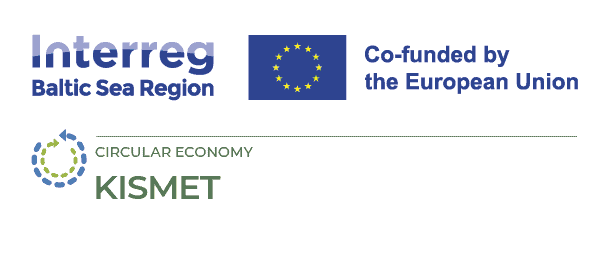
Exploring the Future of Vilkaviškis: A Debate on Local Business and Short Food Supply Chains
20 September 2024
Last week, the Lithuanian Innovation Centre (LIC) co-organised a dynamic debate in Vilkaviškis, where the future of the region’s economy and sustainable food systems took center stage. Moderated by Artūras Jakubavičius, Head of the Innovation Support Services Department at LIC, the discussion brought together key parliamentary candidates to present their business visions for the region.
At the forefront of the debate was the topic of short food supply chains, a critical aspect examined by the international KISMET initiative under the Interreg Baltic Sea Region programme. The candidates – Algirdas Butkevičius, Vytautas Adomaitis, and Joris Juškauskas – not only outlined their strategic visions for Vilkaviškis, but also engaged deeply with the potential and challenges posed by short food supply chains in the region.
Short food supply chains, which focus on reducing the distance between producers and consumers, have become increasingly relevant in promoting sustainability, local agriculture, and community well-being in the region. These systems ensure that locally grown food, particularly fruits and vegetables, can reach the tables of local schools and kindergartens, offering not just fresh, healthy options, but also fostering a stronger connection between farmers and the community.
During the debate, all three candidates expressed strong support for short food supply chains as a way to enhance the region’s agricultural potential while addressing key public health concerns. “Ensuring that our children have access to locally sourced, nutritious food strengthens not only the health of our young ones, but also the bonds between local producers and the wider community,” noted one of the participants.
This dialogue made possible through the KISMET initiative, opened up crucial conversations on how Vilkaviškis can capitalize on these shorter, more efficient food networks to improve food quality, strengthen the local economy, and reduce environmental impact. Candidates agreed that investing in local food systems presents significant opportunities for growth, while also tackling the unique challenges faced by local farmers.
LIC expressed gratitude for the opportunity to facilitate this important debate. “Thanks to the KISMET initiative, we were able to bring these critical topics to the forefront of the conversation, ensuring that issues surrounding local food supply and sustainable development are highlighted in the region’s future plans,” said the organisers.
As Vilkaviškis moves forward, the discussions generated by this debate will continue to shape how the region engages with short food supply chains, supporting a future where local communities thrive alongside local agriculture.





